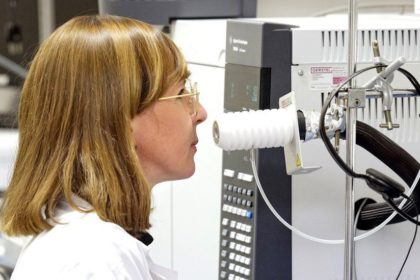
Just like wine and coffee, the flavors of chocolate come from the local terrain, climate and soil where the cacao bean is grown. Chocolates from various parts of the world all taste different. Can those tastes be replicated?
Scientists are trying to determine what produces those flavors and if they can reproduce them consistently. Irene Chetschik, professor in food chemistry at Zurich University of Applied Sciences, has developed “new technological processes that can impact cocoa flavor on a molecular level — to get the best out of each harvest and create consistent quality,” details an article in BBC.
Chetschik says: “Now there is more appreciation for the product – we know where the bean is coming from, which farm, which variety – we can experience a much wider flavor diversity.”
Cocoa beans traditionally are fermented where they are grown. Fermentation will affect quality – a poorly-fermented bean has little flavor; while an over-fermented bean can become too acidic.
Chetschik has developed a “moist incubation” fermenting technique where a lactic acid solution containing ethanol is applied to dried cocoa beans. It triggers the same fermentation reaction in the beans, “but is far easier to control,” she says. The final taste is sweet, rich and fruity.
Nottingham University is also working on a chocolate-enhancing project. They’re using a hand-held DNA sequencing device to analyze the cocoa bean microbes. “With improved understanding of what drives the taste of premium chocolate, fermentation can be manipulated for improved flavor.”
Read more (BBC)
